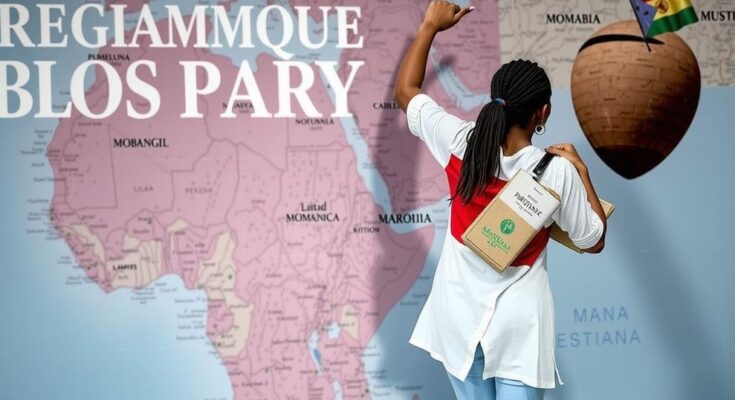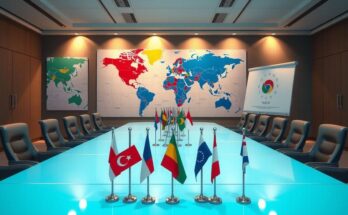Zimbabwe’s President Emmerson Mnangagwa stated that SADC is prepared to assist Mozambique amid escalating post-election violence that has resulted in over 100 fatalities. Calls for dialogue from South Africa and the opposition underscore the urgency of resolving the crisis as human rights organizations demand an end to police brutality against protesters. Experts highlight the detrimental economic effects of the unrest, reinforcing the need for dialogue.
Zimbabwe’s President Emmerson Mnangagwa, serving as the chairman of the Southern African Development Community (SADC), has announced that the regional bloc stands ready to assist Mozambique, which is currently grappling with violent unrest following its recent elections. Human rights organizations report that over 100 lives have been lost amid this turmoil, prompting calls from neighboring South Africa for a dialogue aimed at resolution.
The violence erupted after the Constitutional Council declared the ruling Frelimo party victorious with 65% of the votes in the October polls, a result being contested by opposition factions. The opposition contends that the election outcome is illegitimate, further aggravating tensions in a nation already beset by division. South Africa’s Minister of International Relations, Ronald Lomola, emphasized the need for all parties involved to engage in immediate dialogue to restore peace and propel Mozambique onto a constructive political and developmental course.
Venancio Mondlane, who ran against Frelimo’s Daniel Francisco Chapo in the disputed election, expressed concern for the citizens affected by the violence, underscoring the need for societal solidarity. Amidst these developments, Khanyo Farise from Amnesty International condemned the government’s handling of the protests, highlighting the alarming use of excessive force against demonstrators, including live ammunition and rubber bullets.
Researcher Borges Nhamirre from the Institute for Security Studies addressed the broader implications of unrest on Mozambique’s economy, particularly the closure of ports that affects trade with neighboring countries such as Zimbabwe and Zambia. He reiterated that dialogue remains the essential solution to the crisis. With SADC and the African Union advocating for peace, there exists a glimmer of hope for change in Mozambique.
The current situation in Mozambique stems from post-election violence following contested results from the presidential elections held on October 9. The ruling party, Frelimo, claimed victory, which has led to significant unrest and allegations of electoral misconduct. International and regional entities, particularly SADC and South Africa, have expressed concern for the stability of Mozambique and are advocating for a peaceful resolution to the unrest, underscoring the humanitarian implications and the need for constructive dialogue among stakeholders.
In summary, the crisis in Mozambique following the recent elections has resulted in significant loss of life and heightened tensions between the ruling party and opposition factions. Regional leaders, particularly from SADC and South Africa, are emphasizing the necessity for dialogue to ensure peace and stability. The international community continues to call for an end to violence and the establishment of a cooperative political environment to address both humanitarian and economic hardships within Mozambique.
Original Source: www.voanews.com




